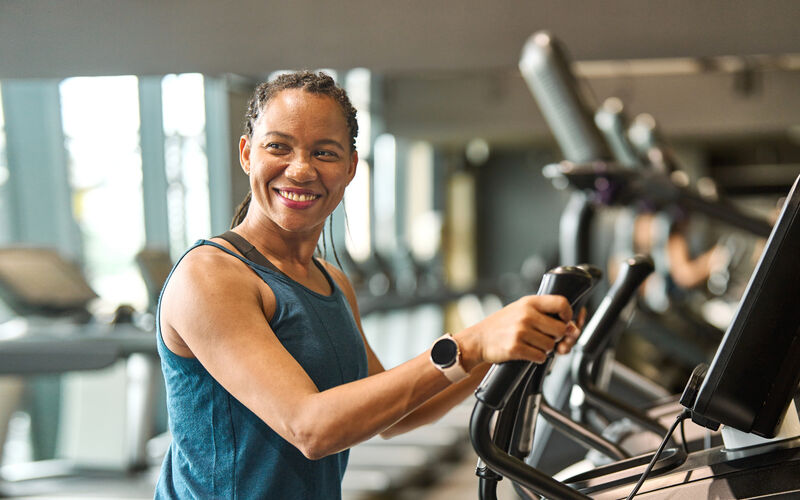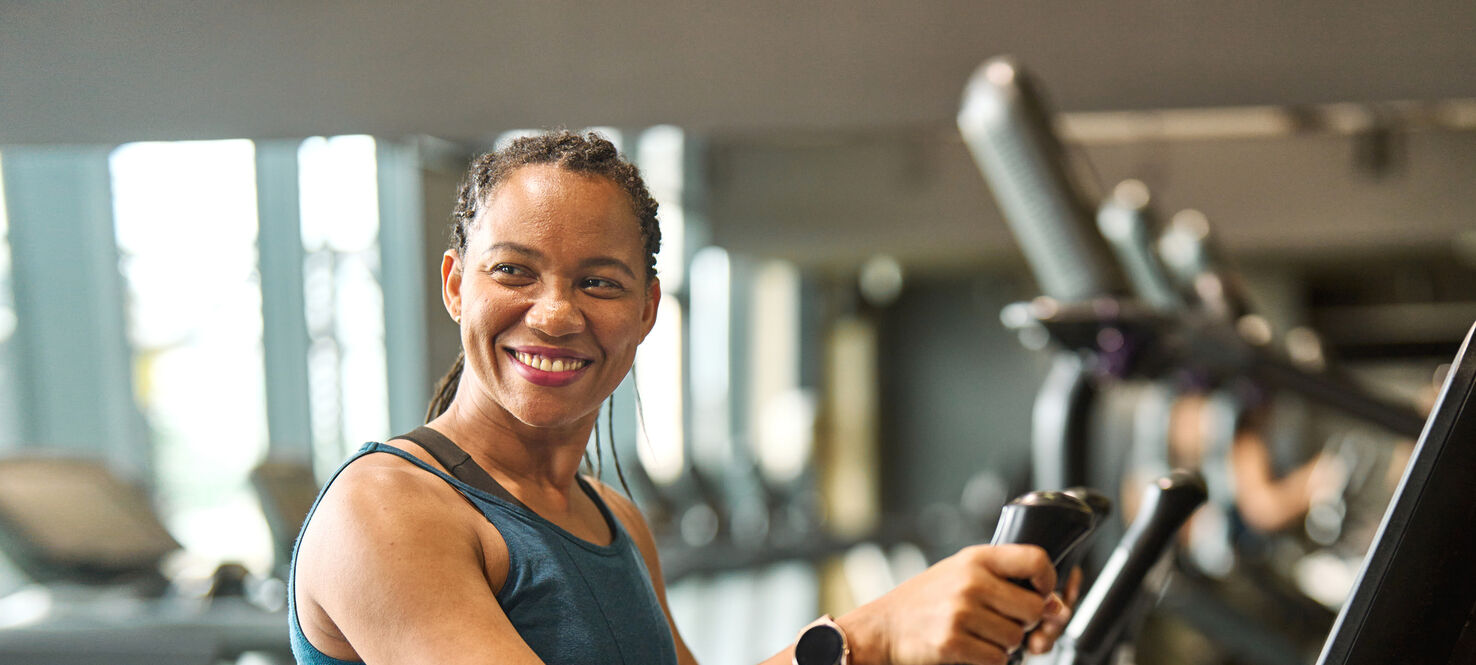10 Ways You Can Embrace Wellness in 2025
As the new year begins, many people living with cancer are reflecting on their goals, resolutions and the steps they can take to improve their lives. For many, this often involves a desire to regain strength, improve mental well-being and boost energy levels after the physical and emotional toll of treatment. Exercise can be a crucial part of that recovery journey, offering benefits beyond just physical fitness.

Nathan Parker, PhD
Whether you’re undergoing treatment, in remission or adjusting to life after a cancer diagnosis, exercise can improve mood, enhance immune function and increase overall quality of life. However, it’s important to approach exercise carefully and mindfully, considering your unique needs and health status.
“Exercise is not just about physical strength, it’s a vital part of emotional and mental recovery,” said Nathan Parker, PhD, a researcher in the Department of Health Outcomes and Behavior at Moffitt Cancer Center. “For people living with cancer, it can help manage treatment side effects, reduce anxiety and improve quality of life. The key is to start where you are and build gradually.”
Here are some exercise tips for people living with cancer as you step into the new year with a focus on healing, wellness and a renewed sense of strength.
Consult Your Health Care Provider First
Before starting any exercise program, it’s essential to consult your doctor or oncology team. They can assess your physical capabilities and provide guidance about the intensity of exercise that is safe and appropriate for you. Depending on your diagnosis, treatment plan and current health, your doctor may suggest modifying your exercise plans or working with a qualified exercise professional to make sure you’re exercising safely and effectively.
Start Slow and Listen to Your Body
Cancer treatments like chemotherapy, radiation and surgery can leave you feeling fatigued, weak or less mobile. Start with gentle exercises and gradually increase intensity as your body allows. If you experience pain, dizziness or excessive fatigue, it’s important to stop and rest. Consider starting with low-impact activities like walking, stretching or yoga, which are easier on the joints and muscles while still providing benefits.
Focus on Flexibility and Balance
Flexibility and balance may be impacted by treatment due to muscle tone changes, joint stiffness or scar tissue. Incorporating flexibility exercises like yoga and Pilates can help reduce injury risks and improve mobility. Simple balance exercises can also be beneficial if treatment has led to dizziness or weakness. Try standing on one leg or using a stability ball to improve your core strength and stability.
Incorporate Strength Training
While aerobic exercises like walking or swimming are important, strength training plays a big role in rebuilding muscle mass and bone density. Light strength training with resistance bands, dumbbells and bodyweight exercises can help enhance strength and prevent muscle wasting. Start with very light weights or resistance bands and focus on controlled, slow movements.
Boost Your Mental Health With Exercise
Exercise releases endorphins, which can improve mood and alleviate anxiety or depression. Regular physical activity can also reduce stress, improve sleep and increase overall well-being. Connecting with others who understand your journey can also provide valuable encouragement and make exercise more enjoyable.
Prioritize Rest and Recovery
While staying active is important, it’s equally vital to allow time for rest and recovery. Cancer recovery takes time. Overdoing it can lead to setbacks, injury or burnout. Give yourself permission to take rest days. Pay attention to how your body feels during and after exercise. If you experience increased fatigue or discomfort that lasts more than a day, consider scaling back or modifying your routine.
Stay Hydrated and Nourished
Exercise can be more taxing if your body is still recovering from treatment. It’s essential to stay hydrated and fuel your body with a balanced diet. Proper hydration supports muscle recovery, joint health and stable energy levels. Consider consulting with a member of Moffitt’s Nutrition Therapy Department to ensure you’re providing your body with the right nutrients to support your exercise goals.
Set Realistic and Achievable Goals
It’s important to keep expectations realistic when it comes to exercise. Cancer recovery is a marathon, not a sprint. Whether that’s walking a few extra steps, lifting a heavier weight or simply feeling more energized after a workout, make sure to celebrate the little victories.
Break your goals into smaller, manageable steps, and focus on consistency rather than intensity.
Be Mindful of Lymphedema
If you’ve had lymph node removal as part of your treatment, it’s important to be mindful of lymphedema, a condition that causes swelling in the arms or legs. Certain exercises or movements may worsen this condition, so consult with your care team to develop an appropriate exercise plan.
Find an Exercise Routine You Enjoy
Exercise doesn’t have to feel like a chore. Finding activities you enjoy can help you stay motivated. Whether it’s walking in nature, dancing or participating in an exercise class, enjoying your routine makes it easier to stay consistent.




